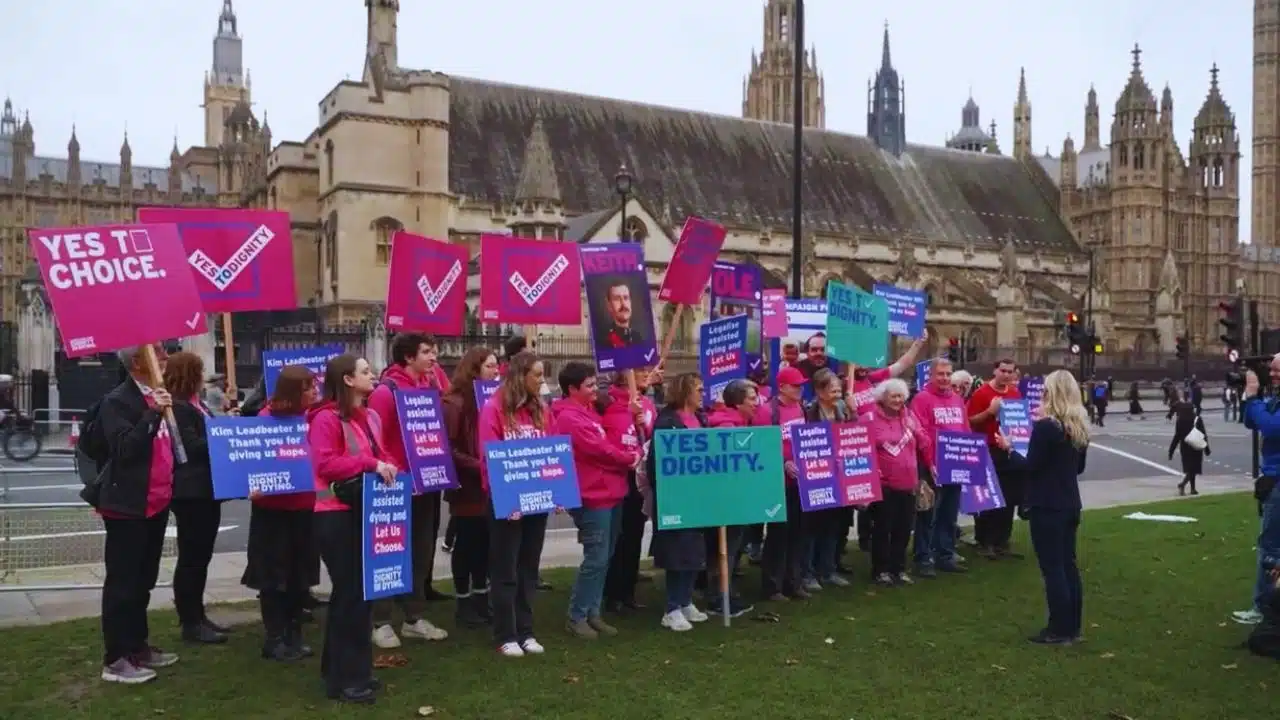For the first time in nearly a decade, the UK House of Commons will debate euthanasia, signaling a significant shift in the country’s legislative landscape. Previous attempts to change the current laws, which impose a blanket ban on euthanasia, have failed in court.
However, Labour MP Kim Leadbeater’s new bill, which proposes a legal option for terminally ill individuals to choose assisted dying, is now bringing the conversation back to Parliament.
A New Bill for Euthanasia
Kim Leadbeater, a Labour politician, has announced the introduction of a new bill that could legalize euthanasia for terminally ill individuals in England and Wales. The bill aims to allow physicians to assist terminally ill patients in ending their lives, providing these individuals with the legal right to choose a dignified death. Although the bill’s full details won’t become public until later in the month, its significance is already evident as it gears up for a parliamentary vote.
Prime Minister Keir Starmer has expressed support for the bill, granting lawmakers a “free vote,” allowing them to vote according to their personal beliefs rather than party lines. Starmer, who supported a similar bill in 2015, has publicly stated that “there are grounds for changing the law,” indicating his openness to reforming the existing legislation.
Ensuring Safeguards and Protections
In introducing the bill, Leadbeater emphasized the importance of strong protections and safeguards to prevent any potential misuse of the law. She clarified that there is no intention to pressure vulnerable individuals, such as disabled people or those with mental illnesses who are not terminally ill, into ending their lives. The goal, according to Leadbeater, is to create a carefully regulated framework that ensures euthanasia is an option only for those truly in need.
It’s important that we get the legislation right, with the necessary protections and safeguards in place,” Leadbeater stated, reflecting the caution and care being taken in drafting the bill.
The Right to Choose: Public Support and Opposition
Public figures like Esther Rantzen, a well-known British television presenter and founder of a children’s charity, have voiced their support for the bill. Rantzen, who is battling lung cancer, has advocated for individuals to have the right to choose how they end their lives. “All we are asking for is the right to choose,” Rantzen said, encouraging citizens to reach out to their MPs to support the legislation.
Rantzen’s personal stance reflects the difficult decisions faced by terminally ill patients. In the absence of legal euthanasia in Britain, she has considered traveling to Switzerland, where assisted suicide is legal, to have control over the end of her life.
Despite this support, the bill faces significant opposition. Disability rights activists like actress Liz Carr have raised concerns that legalizing euthanasia could put vulnerable people at risk. Opponents contend that enacting such laws would jeopardize individuals who may face societal or personal pressures to choose euthanasia.
Lessons from Other Countries: A Cautious Approach
Countries such as Australia, Belgium, Canada, Luxembourg, the Netherlands, New Zealand, Portugal, Spain, Switzerland, and several states in the US have already legalized some form of assisted dying. Although the eligibility requirements differ significantly across jurisdictions, patients can end their lives in these locations by taking a lethal dose of medication that a doctor has prescribed.
However, experts caution against rushing into legalization without a thorough study of the consequences. According to Naomi Richards, an anthropologist from the University of Glasgow who specializes in death and dying, a public push for broader access would likely limit the number of people who might benefit from assisted dying in the UK.
Trudo Lemmens, a professor of health law and policy at the University of Toronto, warned the UK to carefully examine the experiences of other countries. Lemmens cited Canada’s 2016 legalization of assisted dying, noting that many individuals sought euthanasia not only to alleviate their suffering but also because they perceived themselves as a burden to others.
“Countries should be extremely careful about this and deeply study what has happened in other jurisdictions before they allow end-of-life termination by physicians,” Lemmens cautioned.
The Path Forward: A Delicate Balance
Finding a balance between providing terminally ill patients with the right to die with dignity and ensuring adequate protection for vulnerable individuals remains the focus as the UK prepares to debate this controversial issue. The coming weeks will reveal more about the specific provisions of Kim Leadbeater’s bill and the response from MPs and the public.
Ultimately, the decision to legalize euthanasia in the UK could reshape the country’s approach to end-of-life care. For now, the debate continues as lawmakers, healthcare professionals, and the public weigh the ethical and practical implications of this monumental decision.
The Information is Collected from The Hindu and MSN.




































